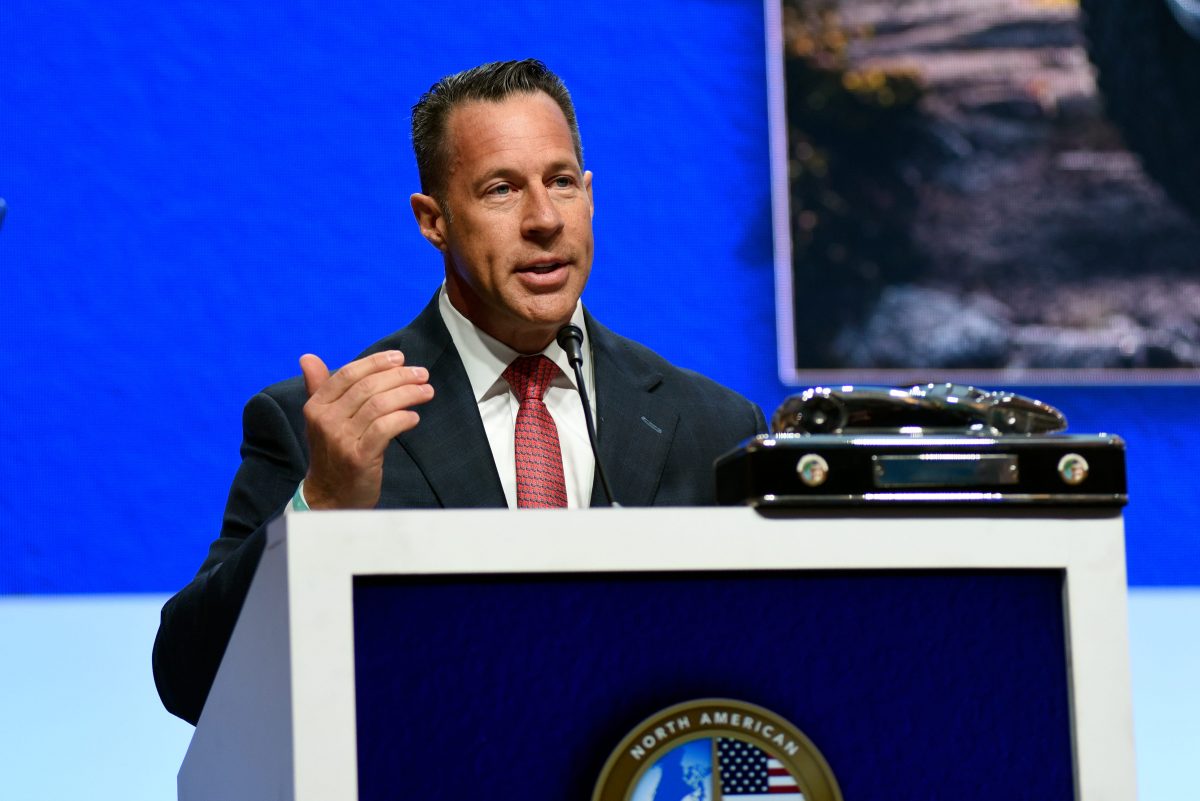Stimulus spending by governments around the world is keeping the outlook for the auto industry strong in the coming months amid the COVID-19 pandemic, said Reid Bigland, Fiat Chrysler Automobiles’ former head of U.S. sales.
“Normally when you get an 80-year high in unemployment — 14.7% — you’re going to get devastation across the board,” Bigland said Tuesday during an Automotive Press Association webinar. “You’re going to get repossessed cars. You’re going to get home foreclosures, people delinquent on their homes and their payments. You’re going to get borderline Armageddon. But it didn’t happen.”
Instead, governments stepped up to hold the consumer relatively harmless, said Bigland, who left the Italian American automaker in April eight months after filing a whistleblower lawsuit against the company over its sales practices. The U.S. government has dolled out $2 trillion that includes stimulus checks and enhanced unemployment benefits not to mention offered loans to small businesses bought back bonds. Those measures are saving the auto industry and keeping order books healthy into October, Bigland said.
“I think from an automotive new sales perspective and an OEM health perspective the next three to four months is looking especially strong thanks to the government stimulus and holding the consumer harmless,” he said.
The additional $600 per week for the unemployed, however, is scheduled to expire Saturday just as infections nationally are rising. Senate Majority Leader Mitch McConnell detailed on Tuesday a new round of direct payments to earners below a certain income level like the $1,200 checks sent in the spring. But President Donald Trump and Washington lawmakers must broker a compromise between the Republicans’ $1 trillion proposal in the Senate and the House Democrats’ heftier $3 billion plan.
“There is no chatter of the worst-case scenario from a consumer perspective and an OEM demand perspective that the government will lock down the economy and take away the stimulus,” Bigland said. “I don’t think that’s in anybody’s cards. I don’t think that’s anybody’s calculus, especially going into an election year.”
Sales fell amidst the uncertainty and a two-month production shutdown in the first half of the year to an estimated 12.8 million U.S. sales for the year, according to auto information website Edmunds.com Inc. But demand and a smooth ramp-up process have helped to keep incentives in check, Bigland said. The companies, he expects, could begin to make up some of what was lost in the second half of the year.
But at some point the government’s spending bill has to come due, Bigland added. He posited that the $7,500 subsidies for battery-electric vehicles could be on the chopping block.
“There is a reckoning at some point that is going to have to be paid,” Bigland said. “In many cases, this $7,500 is going toward a $50-, $60-, $70-, $80,000 vehicle, and I think the argument would be, ‘Hey, that person is certainly able to pay, and why are we giving them a subsidy?'”
Although companies like General Motors Co. and Tesla Inc. have sold enough electric vehicles to no longer qualify for the subsidies, that could pose further challenges for automakers as they seek to develop, sell and profit on the alternative-fuel vehicles.
To meet emission regulations in North America in the next five years, 30-40% of each company’s sales will have to be electrified, or else they will not have the internal combustion engine sales to subsidize the EVs and avoid fines, Bigland forecasts. With 88 electric models in the market last year, the 727,000 sales equates to 8,261 per model. Without Tesla, it drops to 6,432.
“Any new vehicle that sells less than 10,000 per year is an absolutely unmitigated financial disaster from an OEM perspective,” Bigland said. “That’s kind of the deal we have here with respect to these vehicles.”
Automakers are going to have to design more desirable electric vehicles, or else they could find themselves in a difficult financial position.
“It’s not going to be an easy challenge,” he said, “over the next few years.”
bnoble@detroitnews.com
Twitter: @BreanaCNoble
Read or Share this story: https://www.detroitnews.com/story/business/autos/chrysler/2020/07/21/former-fiat-chrysler-sales-chief-reid-bigland-says-stimulus-checks-saving-auto-sales/5480812002/
